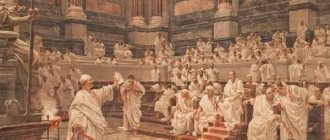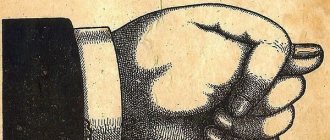People with public speaking skills always easily acquire the status of a leader among friends and colleagues, and quickly achieve success in many matters. It is impossible to imagine a politician who cannot speak logically and structuredly. Throughout human history, there have been people whose oratory skills reached an outstanding level. Such people can rightly be called great orators.
Oratory
This is the art of not just public speaking, but persuasion. It is the right combination of rhetoric, psychology and acting. The purpose of oratory is to correctly present the speaker’s own position to listeners and opponents.
During the speech, the author must defend his own opinion and try to get the audience to take his side. All leaders of countries try to become good speakers. The greatest heads of state who played a major role in human history devoted a lot of time to rhetoric.
Abraham Lincoln
The future US president was born in 1861. He is the first Republican head of state. Lincoln is famous for freeing American slaves.
In addition, Abraham Lincoln is a great orator. His eloquence enabled him to earn a good reputation. He defended poor citizens in American courts and did not take money from them.
In 1863, Lincoln gave a speech that made him known as one of the world's great orators. This was the Gettysburg Address, which is still one of the most famous in US history. It was delivered during the opening of the National Soldiers' Cemetery in Pennsylvania. Abraham Lincoln used only 272 words in his speech. The speech itself lasted less than three minutes.
Nelson Mandela: "Dying for your ideals"
“I fought not only against white supremacy, but also against black supremacy.” I have never ceased to honor the ideals of a free democratic community in which people could live in harmony and enjoy comparable opportunities and rights. It is this ideal that I strive for, it is for this that I am ready to live. But, if this is required of me, for the sake of this same ideal, I am ready to die with the same confidence.”
This piercing speech, full of emotions and faith in a better future, comes from the mouth of Nelson Mandela, a man whose titanic efforts in South Africa once defeated the most dangerous infection on the body of humanity under the name of apartheid. It was this policy of racial segregation that was carried out by the then ruling National Party in the country.
Mandela dared to make that legendary speech in the courtroom that would sentence him and several of his supporters to life imprisonment a day later. Years later, there will be release, and major political success, and winning the post of President of South Africa in the first free democratic elections in the country. But on that day, millions listened to a hero who was ready to sacrifice himself for the sake of only one goal - equality and justice.
Greek Masters of Public Speaking
Most of the greatest speakers in history come from Ancient Greece. This is due to the fact that it was there that the art of oratory first appeared.
The first on the list of masters of public speaking are the residents of the capital of Greece - Pericles, Lysias, Demosthenes and Aristotle. They are considered to be the most famous speakers.
They paid great attention to the movement of their hands and their postures. Also, to be convincing, the masters tried to be original and expressive. They always thought through their speeches so that each of them was unique, had a clear structure and logical conclusion.
Many speakers used elements of humor and satire in their speeches. This allowed them to attract more listeners and gain their sympathy.
John F. Kennedy
John F. Kennedy is considered one of the most influential speakers in recent history. He always prepared important speeches in advance, and when delivering them, he selectively used key words to impress and inspire his listeners. Kennedy was very handsome and energetic, which was his added advantage in impressing people. During the presidential debate between Kennedy and Nixon, people were inspired by Kennedy's answers and voted for him.
But those who listened to his speeches on the radio predicted Nixon's victory. Kennedy's victory showed that visual effect is of great importance and is a determining factor in success in public debates and speeches. Kennedy always tried to improve and update his oratory skills. To achieve this, he developed speaking strategies, adopting the engaging techniques of great historical speakers. He especially revered Abraham Lincoln. Kennedy was always careful to choose the right words to inspire confidence in people. He believed that to be successful in public speaking, it is not what you say, but how you say it that matters.
Fox
Lysias was born and raised in Athens. She and her brother had a large fortune, which became the cause of discontent on the part of the tyrants who came to power in Ancient Greece. Lysias' brother was killed, and the speaker himself had to flee the city.
The return to Athens happened after the triumph of democracy. Lysias took part in the trial of one of the tyrants who was responsible for the death of his brother. The speaker entered with a judicial speech, which was his first. In total, during his life he gave more than four hundred speeches, but less than a tenth has survived to this day.
Pericles
Pericles is considered one of the founders of democracy and the greatest orators of Greece. In his youth, he took part in public meetings and made speeches during trials. At that time he managed to become very popular in Greece thanks to his eloquence.
Pericles was one of the best masters of oratory in a period when eloquence was not yet taught. Like all speakers of that time, Pericles relied on his own intuition. During the speeches, the speaker improvised. Pericles did not write down his speeches. In the fifth century BC he began to communicate with the Sophists, from whom he learned a lot.
Chapter VI. Orators of Antiquity
Not strength, but intelligence!
The great orators of the ancient era are among those lucky few whose art has survived centuries and continues to delight humanity to this day. Orators were the main characters in trials and discussions in public assemblies, laying the foundation for the institution of the legal profession, and such sciences as jurisprudence and political science.
Pythagoras brought oratory to Ancient Greece, having learned the basics of social technologies, in modern terms, from Babylonian and Egyptian priests. Pythagoras introduced the fashion to talk about political topics and, in essence, marked the beginning of the emergence of civil society. Outstanding orators of Ancient Greece, such as Pericles, Isocrates and, of course, Demosthenes enjoyed enormous influence and authority, comparable to the influence of priests and oracles.
Cicero
It is generally accepted that the greatest orator of Greece was the incomparable Demosthenes. He was the complete opposite of the sophists who proliferated in incredible numbers, paid teachers of eloquence, capable of convincing anyone of anything. The most prominent sophists were Protagoras, Gorgias and Critias. Characterizing the methodology of Protagoras, Diogenes Laertius wrote that “He (Protagoras) was the first to declare that every subject can be said in two ways and in the opposite way... he did not care about thought, he argued about words, and the ubiquitous current tribe of debaters originates from him.” Karl Marx noted that in the era of Pericles, that is, in the “golden age” of Athens, sophists, art and rhetoric supplanted even religion.
Demosthenes was an adherent of the school of Pericles, considered the great ruler of Athens his teacher and sought to express his thoughts as clearly and clearly as possible. The Athenians at that time were extremely spoiled and demanded from rhetoricians not only the content of their speeches, but also beautiful and effective facial expressions and gestures. Even the position of the fingers and one or another bend of the body mattered, as in the traditional Japanese theater "Kabuki".
Demosthenes
Demosthenes had a quiet, weak voice, was extremely tongue-tied, his shoulder twitched and, it seemed, there was no chance of becoming an orator.
But perseverance and willpower overcame natural shortcomings. Demosthenes went out to the seashore, picked up sea pebbles in his mouth and practiced pronouncing words clearly and loudly. The sound of the waves replaced the cries of the crowd; having climbed steep cliffs, he learned to overcome excitement and fear. He practiced facial expressions in front of a mirror, and a sword suspended from the ceiling stabbed him every time he jerked his shoulder. His first attempts to perform were not successful, but he did not give up and achieved recognition. He first attracted attention in the process against his guardians, who deceived and robbed him during his childhood. Demosthenes won the case, although he did not return his entire fortune.
Using the example of Demosthenes, one can see that the figure of the orator combined the hypostases of a lawyer and a politician, and often a people’s leader.
Demosthenes began his political activity during the rise of the star of the Macedonian king Philip, the father of Alexander the Great. Demosthenes pointed out to the Athenians Philip's expansionist plans and urged them to create a strong army and fleet. These speeches were called "philippics" and brought Demosthenes a well-deserved fame that survived centuries.
Demosthenes never stopped fighting against Philip and then Alexander. He was awarded a golden crown many times. Having conquered Greece, Alexander first demanded that Demosthenes be executed, but then gave in to the requests of the Greeks and spared him. After the death of the great conqueror, Antipater, Alexander’s heir, sent a detachment of hired killers, “man hunters,” to Demosthenes, who had fled into exile. Demosthenes escaped from the hands of the ancient “killers” and took poison, triumphing over the tyrants even with his death.
On the tomb of Demosthenes the grateful Athenians inscribed verses:
“If you had such power, Demosthenes, as intelligence, Macedonian Ares would not have been able to take power in Hellas.”
The fame of a great orator and skillful politician is rightfully shared with Demosthenes by the Roman Chrysostom Cicero.
His indictment of the conspirator Lucius Sergius Catiline is still impressive today.
Here is the beginning of the first speech:
“Oh, times! Oh, morals! The Senate understands all this, the consul sees it, and this man is still alive. Is he just alive? No, he even comes to the Senate, participates in the discussion of state affairs, outlines and points out with his gaze those of us who should be killed, and we, brave men, imagine that we are fulfilling our duty to the state, evading its fury and dodging its weapons. You should have been executed, Catiline, long ago, by order of the consul, to turn the disastrous blow against you yourself, which you have been preparing against all of us for a long time.”
No less famous is the second Catilinaria, full of sarcasm and self-irony:
“This time, Quirites, Lucius Catiline, maddened in his crime, breathing villainy, wickedly plotting the destruction of his fatherland, threatening you and this city with sword and flame, we have finally expelled from Rome or, if you like, released, or, perhaps, upon his voluntary departure, he was given a parting word. He left, withdrew, ran, escaped. This degenerate, this monster will no longer be inside the city walls preparing the death of these very walls. And we undoubtedly defeated this leader of the internecine war. This dagger will no longer threaten our chest; neither in the field, nor in the forum, nor in the curia, nor, finally, in our own home will we tremble in fear. He was knocked out of position by being removed from Rome. Now no one will stop us from waging war against the enemy according to all the rules. Without any doubt, we have already destroyed him and won a brilliant victory over him, forcing him to move from secret intrigues to open robbery. And the fact that he did not draw his bloody sword, as he wanted, the fact that he left, and we remained alive, the fact that we snatched the weapon from his hands, that the citizens remained unharmed, and the city intact - tell me how much I should he is killed and dejected by all this. Now he lies defeated, quirites, and feels defeated and thrown away and, of course, every now and then turns around, casting glances at this city, torn, to his regret, from his mouth; and Rome, as I believe, rejoices that it has cast out and cast out this destruction.”
Cicero's first speech, “In Defense of Quinctius,” was devoted to the return of illegally seized property. Cicero won confidently.
His greatest triumph was brought to him by the defense of a certain Roscius, accused of parricide. The speech in defense of Russia was structured according to all the laws of the Greek art of “etopeia”, that is, it included dialogues, direct speech on behalf of the accused, exhortations to the judges, and complaints about one’s inexperience and youth.
Here is a short excerpt from this wonderful speech
“Sextus Roscius killed his father. - “What kind of person is he? A spoiled youth trained by scoundrels?” - “Yes, he is over forty years old.” “Then, of course, he was prompted to commit this crime by extravagance, huge debts and uncontrollable passions.” Erutius acquitted him of the charge of extravagance, saying that he had hardly attended even one feast. He never had any debts. As for passions, what passions can a person have who, as the accuser himself stated, has always lived in the countryside, engaged in agriculture? After all, such a life is very far from passions and teaches a sense of duty.”
Cicero appealed to the judges demanding that the real murderers be punished:
“If you do not show in this court case what your views are, then greed, crime and insolence can reach the point where murders will take place not only secretly, but even here in the forum, at your feet, judges, right between the benches.”
After this process, Cicero gained nationwide popularity, which he often abused greatly, which ultimately led to his death. He practically repeated the fate of Demosthenes.
Cicero brilliantly conducted the trial against the influential corrupt official Guy Verres, who was sentenced to a huge fine and exile. He then successfully defended the interests of his friend and patron Gnaeus Pompey the Great, ensuring that the latter was elected commander and given extraordinary powers in the war with Mithridates.
Recognizing Cicero's great merits, the Romans elected him consul. It was at this time that he made his famous speeches against the conspirator Catiline.
Cicero was constantly and uncontrollably engaged in self-praise and won himself a lot of ill-wishers and open enemies.
After the death of Julius Caesar, Cicero decided that it was time to restore the Roman Republic and came out with the Philippics against Mark Antony, one of the members of the ruling triumvirate. Cicero called his speeches phillipics in honor of the famous speeches of Demosthenes, the defender of Greek freedoms. On the part of Cicero, this was an act of the greatest courage; he was well aware that he was risking his life. Octavian Augustus, who initially promised support, suddenly betrayed Cicero and sent a squad of assassins after him.
When Cicero noticed the pursuit, he ordered the slaves carrying him to place the palanquin on the ground and put his head under the centurion's sword.
With the death of Cicero, the golden age of Roman democracy ended.
Most of the works of the great orator and lawyer, as well as the proverbial aphorisms, have reached us, with one of which we will finish the story about the great orators of antiquity:
“Living means thinking!”
Vladimir PROKHVATILOV
Aristotle
Aristotle is another Greek orator. However, he became famous not for his gift of eloquence, but for his philosophical teachings.
Aristotle was a student of Isocrates. At the Academy of Rhetoric, the famous philosopher studied oratory, since he had a great interest in rhetoric. Over time, Aristotle published several books, the writing of which was inspired by his studies at the academy. The most famous of these is the work called Rhetoric.
The philosopher did not study the art of eloquence in order to put it into practice during public speaking. The purpose of studying oratory for Aristotle was to consider such categories as “syllable”, “sound”, “beginning of speech”, “verb” and others. In addition, he studied the social interaction between rhetorician and audience.
Demosthenes
Another great ancient orator of Greece is called Demosthenes. After the death of his father, he was sent to be raised by guardians. They also squandered a large fortune that belonged to the Demosthenes family. After reaching adulthood, the young man decided to go to court to get compensation for the damage. At the trial, Demosthenes represented himself. The process ended with the speaker being able to sue only part of the property from the guardians.
In the study of oratory, Demosthenes was equal to Pericles. He had many shortcomings that hindered his path to the glory of a great orator. But he was able to overcome everything thanks to his perseverance.
Speakers of the 20th century
In the twentieth century, oratory played an important role in the history of many states. It helped key historical figures come to power who had a great influence on the course of history of the last century.
Prime Minister of Great Britain Winston Churchill, the first chairman of the Council of People's Commissars of the RSFSR Vladimir Lenin and Generalissimo of the Soviet Union Joseph Vissarionovich Dzhugashvili, better known as Joseph Stalin, are considered outstanding representatives of the oratory art of the 20th century.
Adolf Gitler
A significant person in the history of the twentieth century, who influenced it in no small way, is usually remembered as the greatest tyrant. But it is difficult to argue with the fact that Adolf Hitler had numerous talents, otherwise he would not have reached such heights. Eloquence, the ability to speak beautifully and convincingly, was also fully inherent in him. Hitler is called the most hated and at the same time the most adored man of the 20th century. Even his most ardent opponents recognized this figure’s ability to deliver speeches.
Winston Churchill
Winston was born in 1874 in Oxfordshire. He is considered to be one of the greatest politicians in world history. It is he who is considered by the British to be the person who greatly contributed to the end of World War II.
Winston is famous for more than just being Prime Minister of the United Kingdom. Churchill is a great orator. The pinnacle of the prime minister's eloquence is considered to be his three speeches, which he delivered at a parliamentary meeting in 1940. The first speech was called "Blood, Sweat and Tears." In it, Churchill explained Britain's purpose and policy during the fighting.
Winston's second speech is known as "We Will Fight on the Beaches." In it, the head of the British government expressed the will of the entire nation to win the war against the Nazis. Churchill urged everyone to defend the island, and even if the British Isles were captured by the enemy, the Imperial Army and British Navy would continue the war against the enemy in order to restore calm to the New World.
The third famous speech of the greatest speaker was called “Their Finest Hour.” In it, Churchill spoke about the upcoming battle for England, on which the life of all of Britain depended, as well as the fate of civilization.
Canadian Defense Minister and his "aliens"
Let's start with perhaps the most recent example. This is a speech by the former head of the Canadian Ministry of Defense, Paul Hellier, which, although it will not go down in the annals of history, will definitely remain in the memory of millions of people who were shocked by such a loud statement, which was made for the first time by an official.
In 2013, at a conference called “Civil Hearings on Declassification”, which took place in the capital of the United States, Washington, the Canadian minister literally horrified the listeners present at the event. He uttered words that had the effect of a detonated hydrogen bomb, striking everyone with its blast wave. “UFOs and aliens are as real as the planes that fly over our heads,” Hellier told a fairly sizeable audience. Other frightening things were said in this speech. For example, the former Minister of Defense spoke about exactly how many types of aliens have been on Earth, emphasizing that some of them live among us. According to him, at least two representatives of alien civilizations today work for the American government. However, he had made the same statements before, but the performance in Washington became a real hit among the multi-million army of network users.
Vladimir Lenin
Vladimir Ilyich was born in 1870 in Simbirsk. On July 6, 1923, he was appointed chairman of the Council of People's Commissars of the Soviet Union. Lenin held this position for less than one year. From 1917 to 1924, Vladimir Ilyich was the chairman of the Council of People's Commissars of the RSFSR.
On his way to power, Lenin was forced to develop his oratory skills. He communicated a lot with Soviet people in a language they understood. His distinctive feature was the ability to understand the crowd, feel its mood and manipulate it in his own interests. Lenin did not often give monologues. Usually he tried to conduct a dialogue with his listeners. Vladimir Ilyich was always very laconic, clearly expressing his thoughts, using guiding hand gestures to have a greater impact on his listeners. Many phrases uttered by Lenin at his speeches eventually became aphorisms.
Joseph Stalin
Joseph Dzhugashvili was born in 1878 in the Russian Empire. Almost no one mentions Stalin when the conversation turns to the world's great speakers. Joseph is remembered by most people as the cruel leader of the Soviet Union. Some foreign scientists openly stated that Stalin was a bad speaker. The reason for this statement was the fact that Joseph did not speak foreign languages. However, his Russian language was enough for him to become one of the greatest heads of state in world history.
Dzhugashvili demonstrated his eloquence in 1917, after Lenin went underground. Stalin made a report to the Central Committee. After the October Revolution, Joseph was presented as the People's Commissar for Nationalities in the Council of People's Commissars. He managed to get this position thanks to a book about Marxism written in 1913. On April 3, 1922, Stalin became General Secretary of the Central Committee of the All-Union Communist Party of Bolsheviks.
Fidel Castro and his record
In 1960, Cuban leader Fidel Castro succeeded in the unimaginable - he managed to hold such a respectable audience as the UN conference hall, filled with the heads of government of the world's countries gathered for the 15th session of the UN General Assembly, speaking to it with a continuous speech lasting 269 minutes. It was this speech by the father of the Cuban revolution that created a precedent, after which the international organization made changes to its regulations introducing restrictions on the timing of speeches by speakers.
Fidel Castro has long been known for his fiery speeches and ability to ignite the hearts of millions. And it is not surprising that a quarter of a century later he managed to break his own record. In 1986, during the 3rd Congress of the Communist Party of Cuba in Havana, he managed to hold the attention of the audience, according to some sources, for more than 7 hours. By the way, there were sources who claimed that the politician’s speech lasted not 7, but 27 hours, but no one believed this statement. It is noteworthy that all this time the commandant, who at that time was, for a second, almost 80 years old, spoke exclusively while standing and without faltering at all, constantly emphasizing that he felt great.
Secrets of Great Speakers
Talk Like Churchill, Be Like Lincoln is the title of James Hume's book, in which he reveals the secrets of the world's most famous speakers. Hume helped write speeches for five Presidents of the United States. The book consists of 191 parts, which talk about the importance of proper stage preparation, courage, behavior and other aspects that need to be taken into account when preparing for public speaking.
All masters of public speaking have their own techniques for capturing the attention of a crowd. A real speaker must have many qualities that will make him an ace at public speaking.
First, you need to be well-read. This will allow you to quickly select the right words and avoid long pauses during the speech. The speaker's speech should be clear, logical and consistent. It is necessary that the “speech” interests the listener from the first minutes, otherwise the audience will be lost.
For a high-quality and confident speech, you should reread your speech many times. It is worth removing slang expressions and jargon from it to make the “speech” more strict and serious. There is no need to mention unnecessary facts during your speech. Only those arguments that directly relate to the topic of the speech should be used.
It is also necessary to behave calmly and reservedly. Oratory involves a harmonious combination of calm and confidence.








